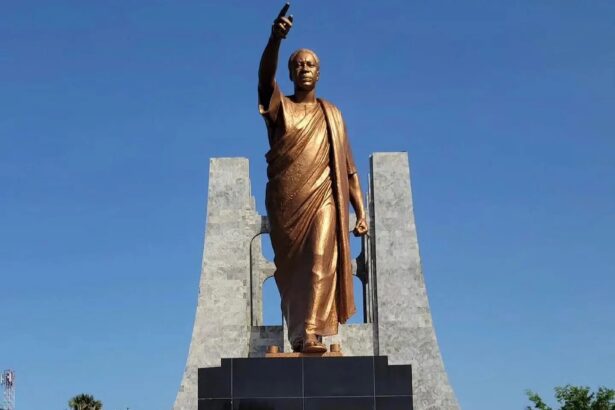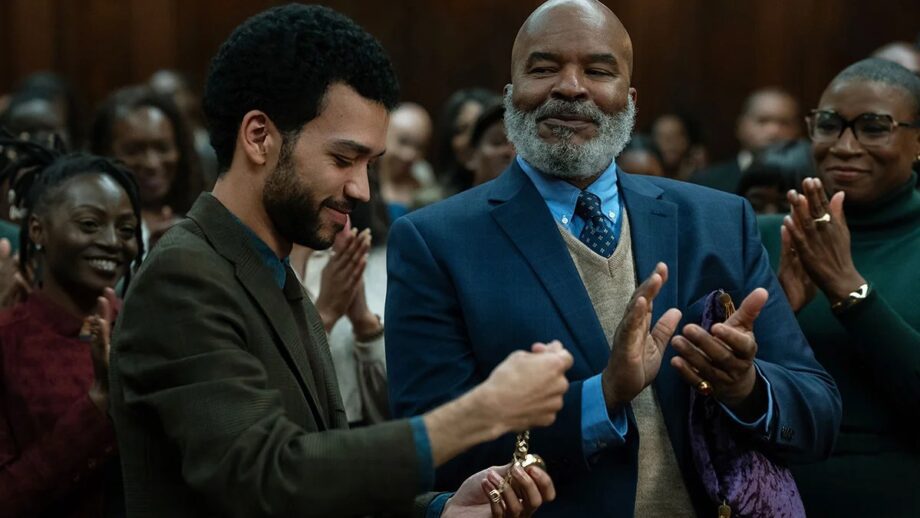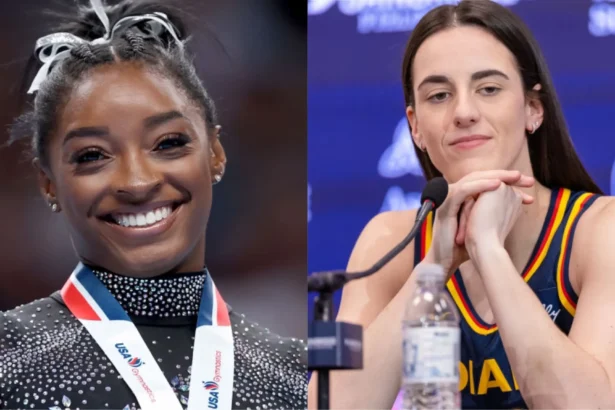Early promotions for Kobi Libii’s debut film, “The American Society of Magical Negroes,” faced criticism on Black social media due to a misunderstanding of its purpose. However, at its world premiere at Sundance, the film received a more positive reception.
The film draws inspiration from the concept of the “magical negro,” a Hollywood stereotype featuring Black characters serving white characters, first highlighted by Spike Lee in 2001. “The American Society of Magical Negroes” aims to explore contemporary race relations, shedding light on the invisibility experienced by people of color in the American workplace and other challenges.
There are several commendable aspects of Libii’s film, notably the performance of Justice Smith, known for his roles in “Dungeons & Dragons: Honor Among Thieves” and “Jurassic World Dominion.” The veteran comedic actor David Alan Grier, along with Nicole Byer, An-Li Bogan, and Drew Tarver, provide significant support.
Smith portrays the struggling Black artist Aren, who is recruited into a secret society of Black men and women, whose main purpose is to placate and uplift white egos in an effort to mitigate violence against their race. In line with the theme, Aren is paired with the ambitious tech employee Jason (Tarver). Despite being colleagues, Aren consistently defers to Jason, assuming a subordinate role.
As the two men develop feelings for their high-ranking colleague Lizzie (Bogan), Aren struggles to maintain his supportive role to Jason. Providing guidance is the older magical negro, Roger (Grier). When the company MeetBox faces criticism for its DEI violations, Aren becomes even more conflicted, despite Roger’s wisdom.
Having participated in both Sundance’s Screenwriters Lab and Directors Labs, Libii’s debut film has been highly anticipated. The casting is exceptional, with strong performances by Smith and Grier. The film’s visual style is notably modern and polished, especially for a debut. However, the narrative presents some significant disappointments.
Despite Libii’s past success in television and theater as an actor and writer, the film’s goals are not entirely clear. “Magical Negroes” often loses focus while attempting to address the disregard for Black people’s marginalization, particularly in the workplace.

The inclusion of a love story further complicates the film, reflecting Aren’s struggle to assert himself in a predominantly white environment, mirroring Libii’s uncertainty. The film’s tonal inconsistencies stem from an inability to fully engage a specific audience, with an apparent focus on white audiences and Black individuals primarily existing in white spaces.
Unlike “American Fiction,” “Magical Negroes” lacks widespread appeal. This doesn’t diminish its value, but it does make it more challenging for the film to resonate across audiences.
To attract a wider Black audience, the film “The American Society of Magical Negroes” is set to be released in March by Focus Features. Despite potential challenges, the film holds promise and could make a significant impact with continued refinement and feedback from race consultants. Despite its flaws, the film is expected to initiate important conversations about race, reflecting the themes portrayed in the film. “The American Society of Magical Negroes” is scheduled for release on March 15.




